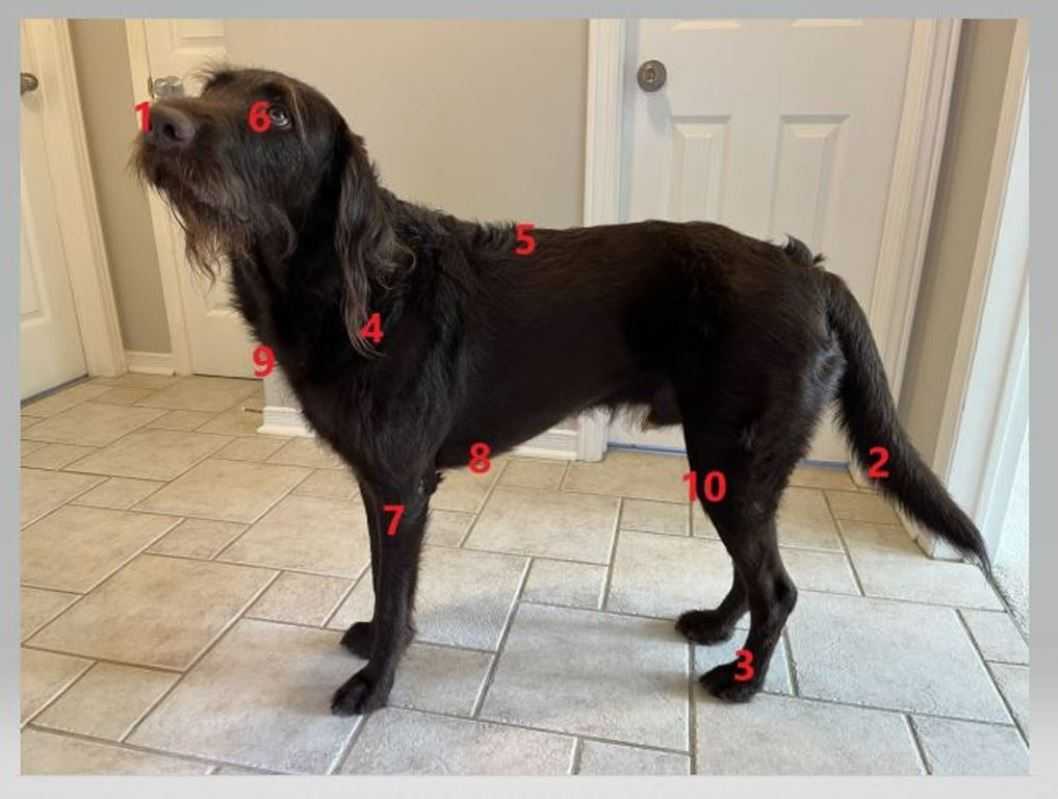
Name That Dog Part Trivia Quiz
This good boy wanted to help with a quiz so he stood nicely so you could see and label his body parts.
A label quiz
by ramonesrule.
Estimated time: 3 mins.
- Home
- »
- Quizzes
- »
- Animal Trivia
- »
- Dogs


| 1. |
| 2. |
| 3. |
| 4. |
| 5. |
| 6. |
| 7. |
| 8. |
| 9. |
| 10. |